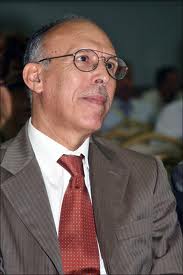On Saturday 1 December, Moroccan TV news reported on the royal
visit to Nador, eastern Morocco's largest port city. The king visited the
special tourist development zone at Mar Chica, the lagoon next to Nador and a
new golf academy. The king opens tens of such projects every year – some are
extremely significant while others are not. Many such inaugurations would be
left to a minor royal or government official in another country. The king and
his close entourage are, however, key decision makers so, during such a visit,
much is happening backstage, while 'who-is-who' can be seen on TV news by
watching who is presented to the king.
During the Nador visit the king looked unwell and walked with
the aid of a crutch from his car to the official inauguration tent. Very quickly
this appearance was the object of multiple commentaries in social media. The
most reasonable explanation is that in the winter the king suffers when a badly
treated leg injury of some years ago flares up. Palace sources made absolutely
no comment. The last time the Royal Household made an announcement on the king's
health was in 2009.
For more news and expert analysis about Morocco, please see Morocco Politics & Security.
© 2012 Menas Associates




.jpg)

















.jpg)












